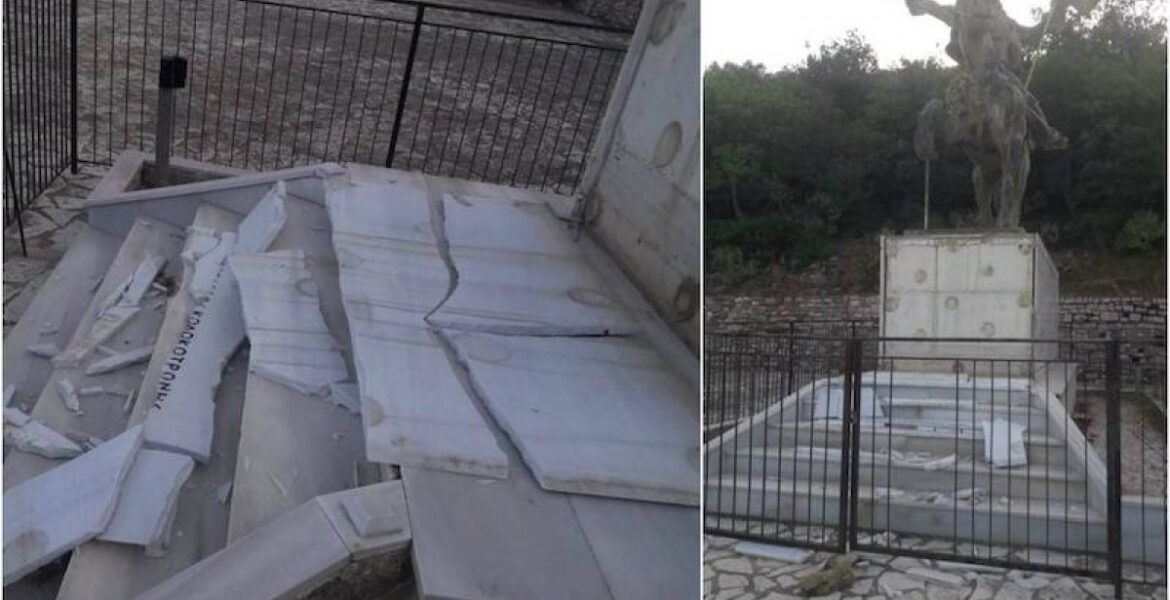
One of Greece's most revered heroes, Theodoros Kolokotronis, had a statue in his honour vandalised in the central Greek town of Ramovouni, in the municipality of Oichalia.
According to Eleftheria Online, the malicious destruction was noticed on Tuesday.
The municipality explained that the monument was severely damaged and in particular the side marbles at the base of the monument and the inscription "Theodoros Kolokotronis" had been destroyed. The affixed letters no longer exist.
The reaction of the mayor Giota Georgakopoulou and the deputy mayor Giannis Papadopoulos was immediate, who gave the order for the immediate restoration of the monument.
The Municipality of Oichalia stated that "vandalism took place during the three days of the Holy Spirit and not earlier. The monument is an integral part of our cultural heritage and is always a point of reference for our municipality."
Greek General Theodoros Kolokotronis, known as the ultimate symbol and leading figure of the Greek War of Independence, which took place from 1821 to 1830, was born on April 3, 1770, and passed away on February 4, 1843, at the age of 73.
He was a general and a leading figure of the Greek War for Independence in 1821, as well as a politician and country advisor. He is also known as the Elder of Morias.
Kolokotronis’ greatest success was the defeat of the Ottoman army under Mahmud Dramali Pasha at the Battle of Dervenakia in 1822.
In the battle of Dervenakia, 8,000 Greeks defeated an Ottoman forces numbering 23,000. The battle was so brutal for the Ottomans that of their 23,000 fighters, over 17,000 had been killed while there was only a handful of Greek martyrs.
In 1825, he was appointed commander-in-chief of the Greek forces in Peloponnese.
He was a big supporter of Kapodistrias and his policies, and was a leader during the events of Otto’s enthronement. However, in 1833, he had a serious conflict with the Regents, eventually sending him and other heroes of the Revolution to prison in Nafplio, charged with treason. In 1834, he was sentenced to death, but after Otto’s coming of age, he received a royal pardon and became an “Advisor of the Country”.
During the last years of his life, Kolokotronis dictated his Memoirs to Georgios Tertsetis, which were published in 1851 under the title ‘A Narration of Events of the Greek Tribe from 1770 to 1836’. This book has been an invaluable source of knowledge around the Greek Revolution of 1821.
Today, Kolokotronis ranks as the most prominent figure in Greece’s War of Independence.

